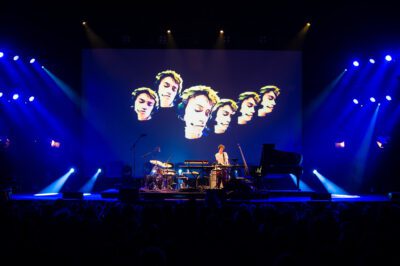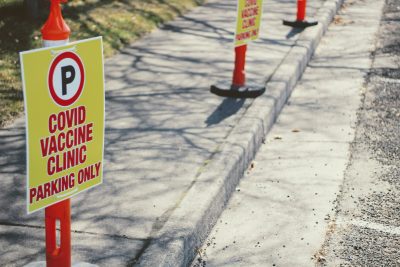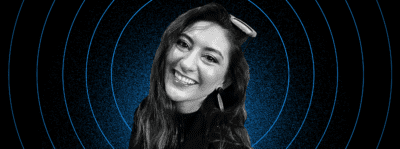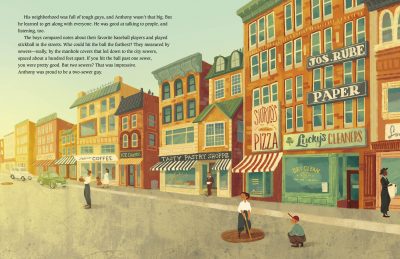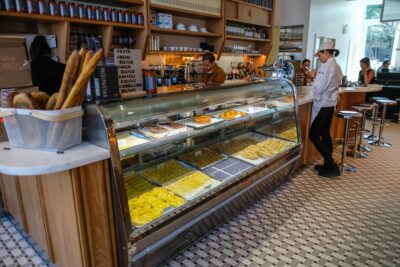All photos by Marc Tarigan
Meet four creatives who made big pandemic career pivots
The pandemic created room to explore one’s passions, and these Brooklyn residents took full advantage by saying 'yes, and ...'
The pandemic ushered in a series of unprecedented (sorry) firsts for New Yorkers: widespread health scares, confinement to apartments, isolation and more time for reflection and growth than anyone knew what to do with. While some doubled down on streaming and relaxation to cope, others explored passions with their newfound free time. They mastered the ancient art of the New York side hustle.
Like many urban dwellers, New Yorkers are known to have a “yes, and”—something they’re pursuing outside of their 9-to-5 for fun, extra cash, giggles or whatever else serves them. While the pandemic created room for hundreds of “yes, ands” to get their start, a newer, semi-post-pandemic reality has revealed many of these projects have legs. In some cases, they’ve grown beyond mere passions into legitimate vocations, ranging from creative to hospitality, wellness and a few stops in between.
“Mentally, facing life and death usually wakes us up real fast to what matters, and all the things we wish we’d done,” says career coach Pam Yang. “Our mortality is a great source of fuel and is one of our most useful tools that I really wish people used more often.” The confinement many have experienced over the course of the pandemic forced a reckoning with a sort of existential wonder, as if it were printed on the wall opposite their laptop screen:
Am I enjoying what I’m doing?
Those who answered ‘no’ were given the opportunity to change that. “Physically being home, working on your own schedule and removing the pressure of people knowing your every move,” says Yang, “people could use their time however they wanted as long as they took care of business for their 9-to-5.” Writing between meetings, drafting business plans over lunch, thinking through what’s next while your Zoom camera is off—all behaviors that were less possible pre-pandemic, suddenly become the norm for many aspiring to work that lifted them.
Here are a few of the more inspiring yes, ands born during the pandemic.
Herrana Addisu
Model citizen
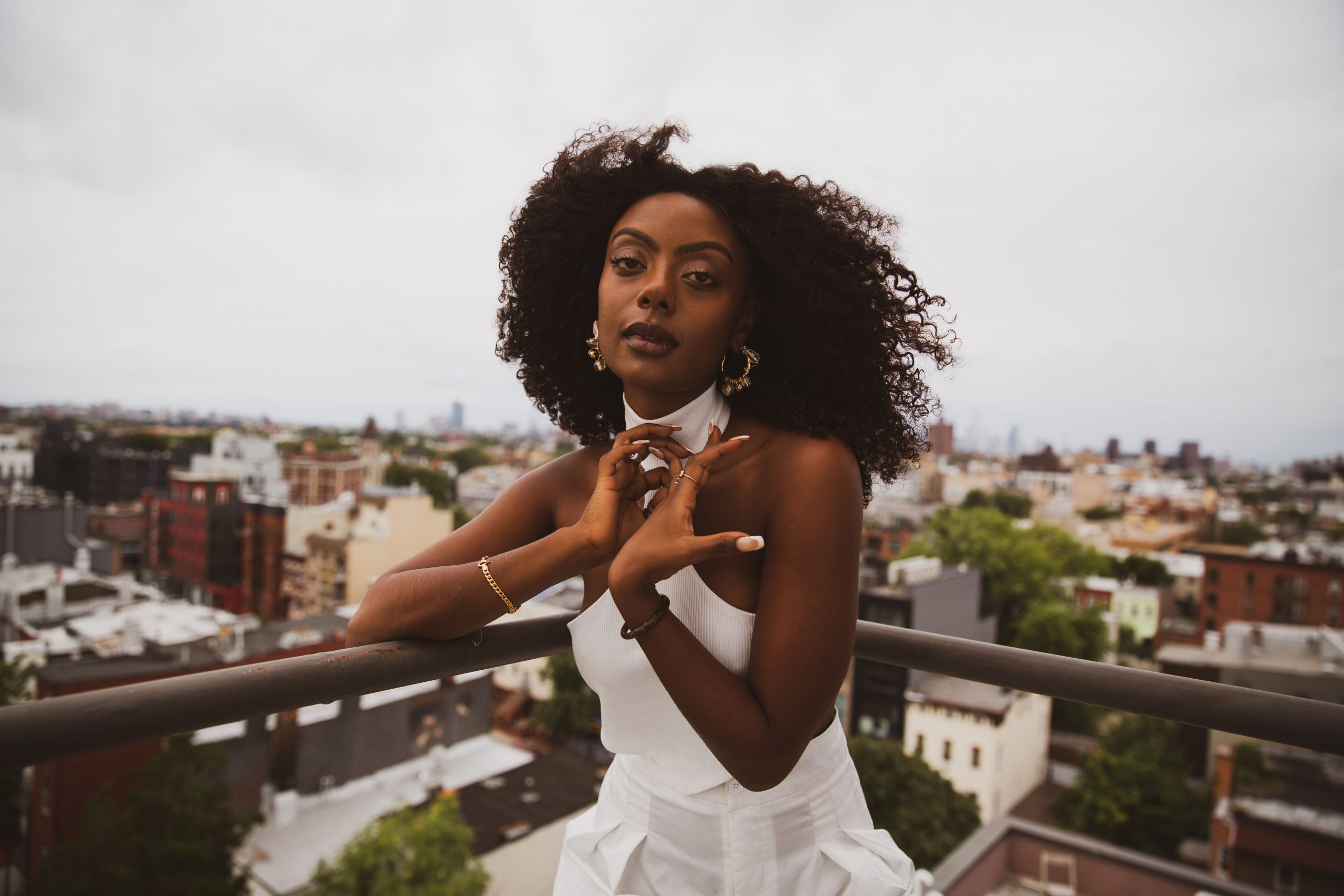
Photo by Marc Tarigan
When the pandemic began in March 2020, Herrana Addisu, an international policy communications officer, might have predicted longtime New Yorkers would seek refuge outside the city, grocery stores stripped of product and months of isolation, followed by a return to gathering in the form of protesting.
But what she didn’t see coming was that the pandemic would force her to reimagine how she supports her own community. Beyond working in policy, she tapped more into her creative impulses, as both a model and founder of the newly launched ChuCha Studios. For her pandemic pivot, Herrana (who would drop Addisu for her modeling name) allowed her primary passions—social justice and creative expression—to finally collide.
These passions can be traced to Addis Ababa, Ethiopia, where Herrana was born and partly raised before moving to South Jersey at age 12. The switch from feeling entirely at home in Ethiopia to existing in an entirely unfamiliar place was a culture shock Herrana wasn’t prepared for, and led to her quickly forgetting what pride, self-love and beauty meant back home.
“I had a lot of internalized self-hate that I didn’t realize,” she says today. “I wore hazel-colored contacts. I would straighten my hair,” compared to the protective hairstyles she wore in Addis Ababa, lovingly braided by her family. She’d forgo the matching habesha kemis dresses she wore with her grandmother. While Herrana downplayed some aspects of her culture and person as she made a new home for herself in New Jersey, her creative sensibility and interest in human rights remained. So she pursued a formal education and career in human rights, gender equality and international law at Rutgers University.
Despite finding fulfilment in the fact that her day job in international policy can help change individual lives, she appreciates that the pandemic allowed her to unapologetically embrace that she is “human and multifaceted and that is OK,” she says. “We don’t have to apologize for [pursuing interests separate from our work] anymore.” That realization came quite suddenly as Herrana worked from home, and a question on the wall across from her laptop appeared:
Is this the only way I want to support my community?
When thousands took to the streets—Fulton and Eastern Parkway and Tompkins and seemingly every block in Brooklyn—to protest the killing of George Floyd that summer, Herrana was there, adding her voice and body to the crowd. She felt jolted by the important, electric energy, both as a human and a creative. Something like a switch flipped, prompting her to channel her outrage into clicks of her film camera. Heranna had an interest in photography since childhood, but until that summer, her creative interests were largely dormant. Now she had a reason to shoot—the protests needed to be captured and remembered—and a social media following to share her photos and thoughts on George Floyd with.
Before long, she moved in front of the camera, modeling, invited to pose by the dozens of Black and brown photographers in Brooklyn that she’d met through her local community garden, the Hercules Garden. In this new network she discovered the people she met “had so much happiness. And at the time I needed to know that it was possible for Black people to be happy,” she says.
Now, following dozens of shoots, thousands of new Instagram followers, countless shares of her trending images and a spread on visual platform Sunday School, Herrana has accepted her yes, and—and leans into the challenges that come with it. “There is a stigma [with being] a model,” she says. Herrana doesn’t want to be discredited as a “just” a model or policy worker, but rather sees how her unique perspective having experience in both worlds enables her to tell stories only she can. That’s the mission of her latest endeavor, an extension of her modeling work, the culmination of her creative exploration over the past year: ChuCha Studios.
Named after her late mother, ChuCha is a creative production studio Herrana launched in August as a vehicle to tell authentic Black stories. It’s a resource for the creatives she’s met in the past year who have expressed interest in her full-time advocacy work and seek guidance on how to make their art drive systemic change and challenge how we understand Blackness.
The first major projects out the gate for ChuCha are a photography series designed to humanize formerly incarcerated people, showcasing them as joyous humans; and a documentary on Black happiness set for a fall-winter release. Herrana and her team will be distributing both projects through local community centers and POC-owned spaces, ensuring the community that brought her up has access first.
“We need to create beautiful things that remain accessible to the community,” she stresses. “I wanted to do this documentary for people like myself, especially coming out of this pandemic, to see that it’s possible for you to be happy. It’s possible to choose yourself.”
While she’s just getting started down this new avenue of highlighting beautiful Black people experiencing happiness, Herrana is now equipped with an essential understanding for any yes, and: “Yes, I model. Yes, I know how to take pictures. Yes, I work in international policy. Yes, I’m learning how to DJ,” she laughs.
“And what?”
Herrana is just one example out of hundreds of hungry “yes, ands” evolving a pandemic passion into a fully-bloomed idea, craft, or business. Get to know three more below:
Abi Balingit
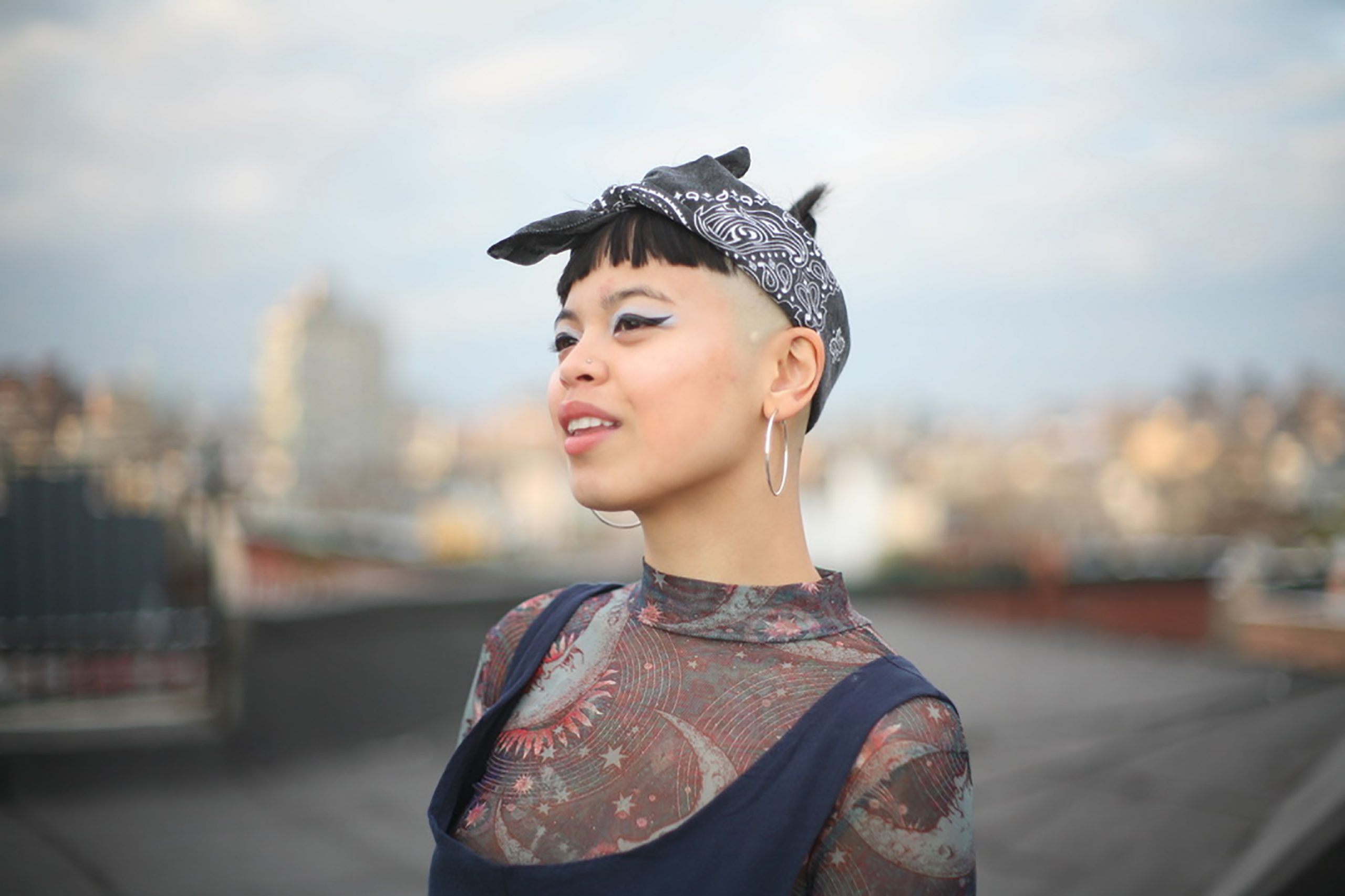

Photo by Marc Tarigan
Her yes, and: Food blogger, The Dusky Kitchen
Bed-Stuy
Abi Balingit is an ad operations manager for live music company Bandsintown. During the pandemic she launched The Dusky Kitchen, a baking blog that features stories and recipes from her Filipino roots.
How were you introduced to cooking?
My biggest food influence has always been my parents. When I was growing up in California, they made so much Filipino food, and so did my lolas, titas, titos, etc. I’ve been blessed with a wonderful family that loves to cook!
What role did cooking—for yourself and others—play during the pandemic?
Cooking Filipino dishes and also baking Filipino fusion desserts has helped me feel more connected to my culture than I have ever felt before. Not only has it been rewarding for me to eat my own food, it’s exciting to see that other people are enjoying what I’m making. During quarantine, I was so nostalgic for the flavors of my childhood, and it’s a joy for me to translate them into desserts that I love to eat now.
How do you make time for Dusky Kitchen while working a 9-to-5?
I’m always trying to figure out ways to optimize my time, like measuring out ingredients or writing blog posts during my lunch breaks. Learning how to balance everything is still an uphill battle on busy weeks, but it’s been a rewarding journey so far.
Luis Fernando
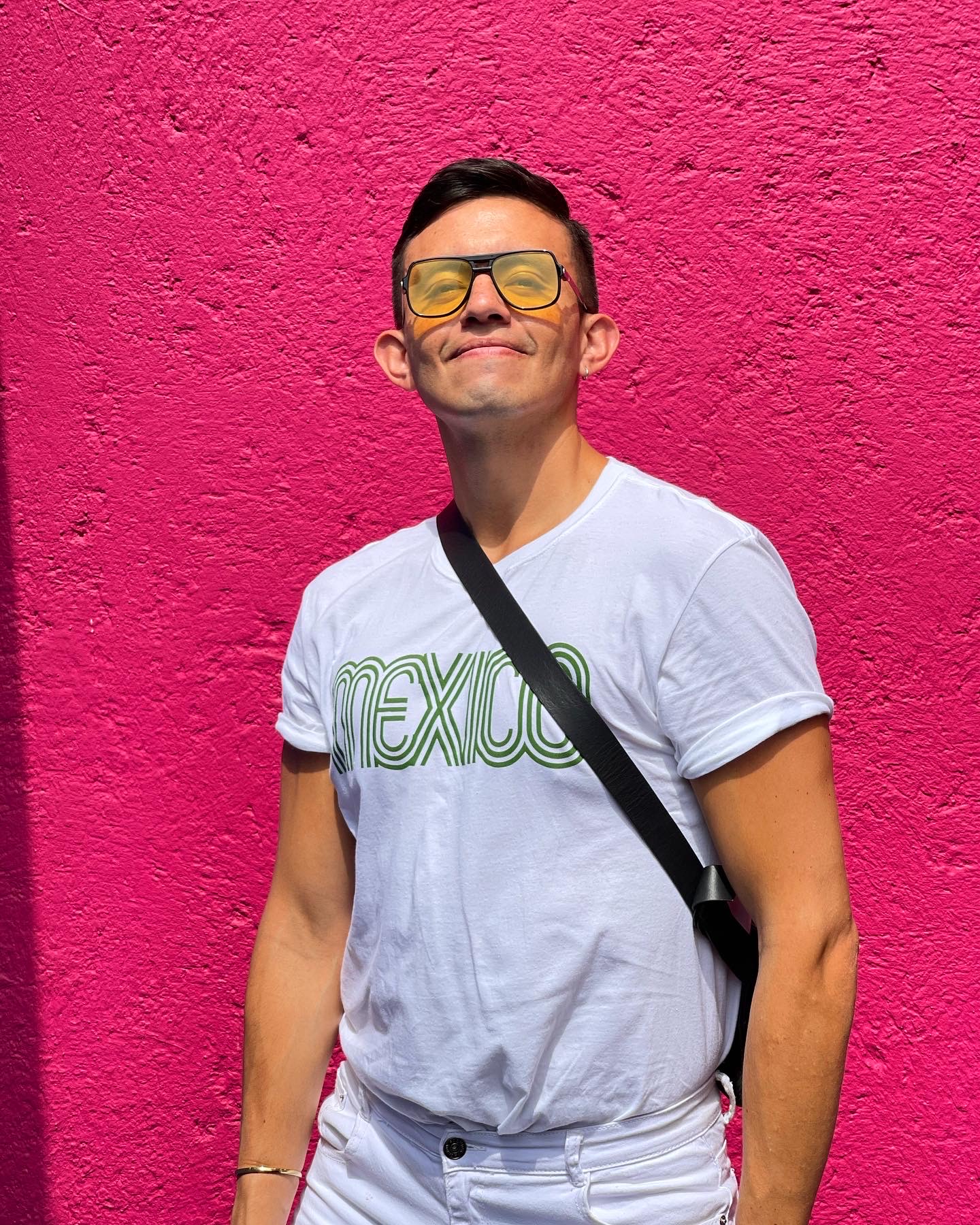

Photo by Marc Tarigan
His yes-and: DJing
Williamsburg
Luis Fernando is a full-time immigration lawyer who discovered a love for DJing after a chance visit to a friend’s studio last year. He’s since performed at paries across the city and launched HER, a monthly queer party at Bushwick’s 3 Dollar Bill.
How does a lawyer discover he has a knack for deejaying?
My friend Hannah Lou, an amazing DJ, asked me if I wanted to go with her to her studio while she played some music and put together a set for one of her online performances. I agreed, and that was the first time I experienced seeing closely how someone was DJing. I immediately fell in love with it. Later on, I met up with my friend Tommy Hart, another amazing DJ currently residing in Mexico City, and I asked him if he would teach me how to DJ. He was so nice to teach me all of the basics during one session, and then I took it from there. Lots of YouTube videos, learning from seeing people DJing and practice, practice, practice.
How did you maintain your creativity when isolated during the pandemic? How are you maintaining your creativity today?
[During the lockdown], I spent a lot of time on my little terrace outside, blasting music and dancing by myself. I often angered my neighbors, who often thought I was having a party. I kept like five friends in my pandemic bubble, and I remember one day hanging out with my friend Terence, who also works in nightlife, listening to music on my terrace and we both (mostly him) started sobbing while listening to the music that we would dance to at the club. It pushed me to appreciate more than ever before how important queer bars and clubs are for the queer community. I maintain my creativity today at queer bars and clubs, while watching the dolls performing on stage, while listening to other DJs dropping the beats and while connecting again with my community on the dance floor.
What’s next for you as New York and the world reopen?
Apart from deejaying, I have been producing a monthly party at 3 Dollar Bill called HER. It has become a huge phenomenon. The party is based on inclusivity and the love for all things queer: dancing your heart out, watching as amazing queens perform and dressing up. So, since I am so proud of creating that space, I would like to continue growing as a producer and be able to create bigger spaces and parties where everyone in the queered community feels accepted, celebrated
and desired.
Tianna Howard
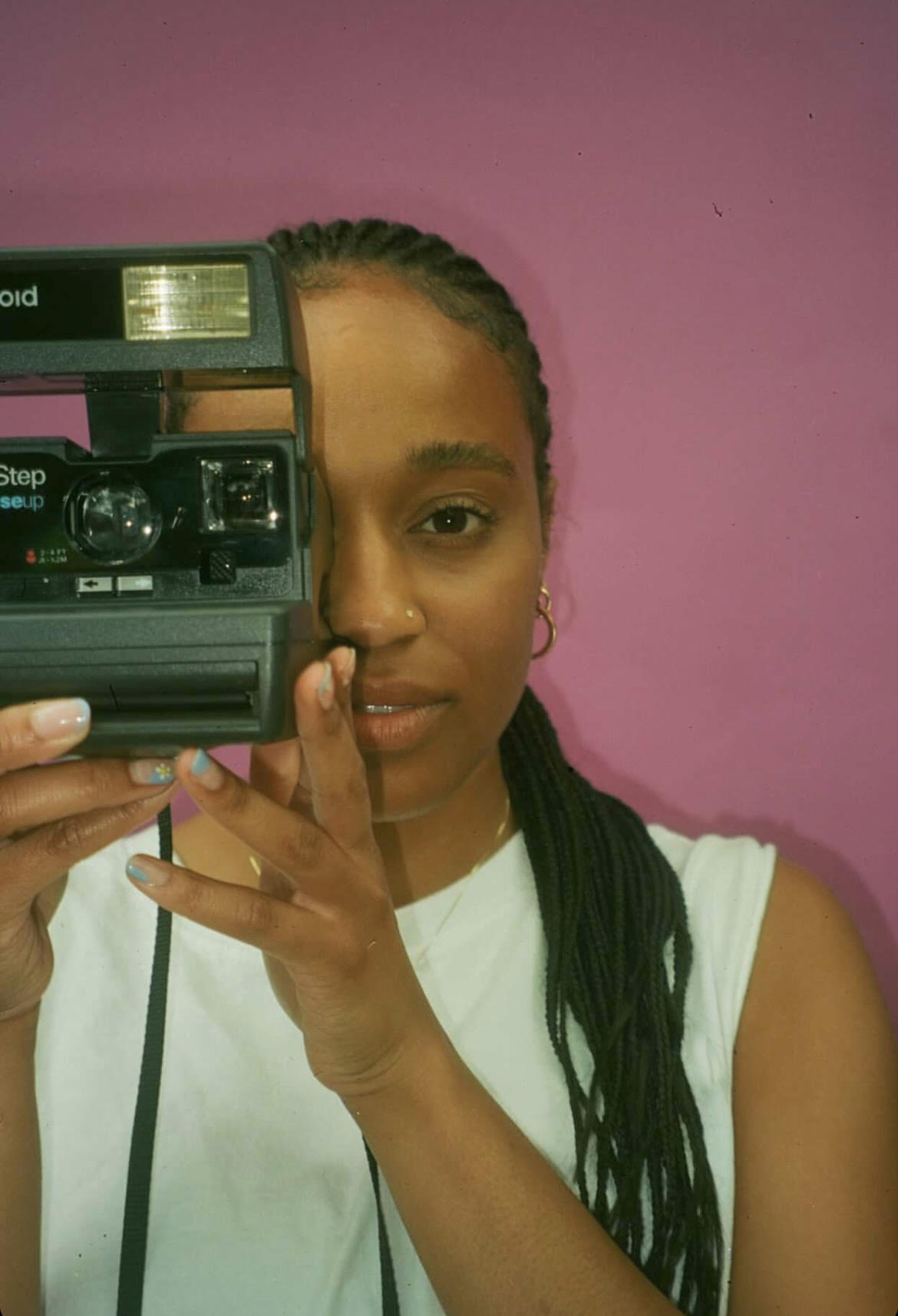

Photo by Marc Tarigan
Her yes-and: Photographer, Girl Gone Gotham
Bed-Stuy
Tianna Howard used to introduce herself as an account supervisor. Now she’s a photographer first, who hosts portrait pop-ups across Brooklyn.
How were you introduced to photography?
I distinctly remember spending hours digging through family photos at my aunt’s or grandmother’s, enamored by what once was. Before I knew how a camera worked, I understood and appreciated that it was the only way to stop time. My infatuation with nostalgia led me to ask for a camera for Christmas around 12 or 13, and I’m pretty sure the memory card still has pictures from our trip to Sea World on it.
How did you transition from practicing photography as a hobby to pursuing it as a career?
I started introducing myself as a photographer. Simple as that. I stopped denying myself that title because I didn’t own expensive equipment or because my portfolio is mostly iPhone-ography. I decided that I would claim this space (finally) for myself, and that if I believed it was more than a hobby, then it shall be.
Did the pandemic support or hinder your creativity?
Losing my job in 2020 was the best thing that ever happened to me. Once I got past drinking a bottle of wine almost every night, I started trying things. I decorated four homes virtually (I love interior design), I made vessels for friends with Concrete Geometric, I started blogging. I was free. And I’m still free. I keep a camera with me at all times, and you can now find me lugging around a backdrop stand and refurbished Polaroid camera for my pop-up portrait shoots.
This article first appeared in the Fall 2021 issue of Brooklyn Magazine. Click here to subscribe today.
You might also like 

















